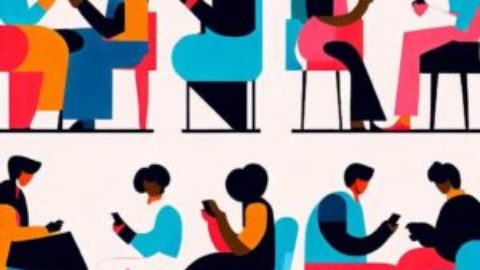
Ever browsed through a musty old bookstore, rifled through vinyl records in a music shop, or felt the texture of a beautiful dress at a boutique? Even in our digital age, there’s something about these tactile experiences that can’t be replicated online. So why do we still love physical products so much?
The Charm of Physical Possessions
Remember when you were a kid and you had a favorite toy? That battered old teddy bear or cherished model car wasn’t just a plaything – it was a friend, a comforter, a part of your world. This is one of the earliest forms of ‘psychological ownership’ we experience.
Psychological Ownership: It’s More Than Just Possession
Psychological ownership isn’t just about legally owning an object. It’s about emotionally connecting with it, making it part of your identity. That’s why losing a beloved object can feel like losing a part of ourselves.
Physical vs Digital: The Battle of the Formats
Fast forward to the present day. With our lives increasingly moving online, why do we still cherish physical items? Ever thought about why flipping through pages of a hardcover book feels different to swiping on a Kindle? Or why vinyl records have made a comeback in the age of streaming?
Identity and Ownership in the Digital Age
A fascinating study led by Eugina Leung of Tulane University looked into this very question. Their research suggested that physical products provide a deeper sense of psychological ownership than digital ones. When we buy a physical product that aligns with our identity – a book for a bibliophile, a vinyl record for a music lover – it becomes a symbol of who we are.
Why Transient Products Don’t Cut It

The researchers also found out something interesting about the longevity of products. People prefer owning physical copies of items that are designed to be kept for a long time, such as books, rather than transient items like newspapers.
- Books, records, works of art – these are items we hold onto, items that become a part of our personal history.
- Newspapers, magazines, even certain types of clothing – these are items we use and discard.
What This Means for the Future
In an increasingly digital world, marketers need to remember that consumers aren’t just looking for convenience – they’re looking for experiences and self-validation. The tactility and physicality of a product can sometimes offer an emotional connection that a digital version can’t match.
Embracing the Physical in a Digital World
So, the next time you’re drawn to a hardcover book in a store, or choose a vinyl record over a digital download, remember – it’s not just about nostalgia. It’s about asserting your identity and claiming ownership over the physical world.






